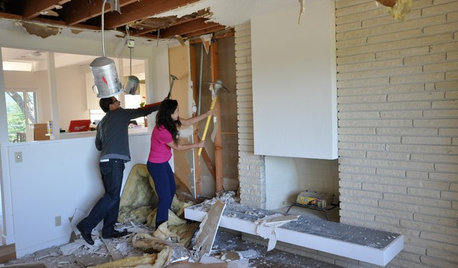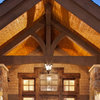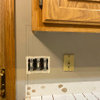AFCI Tripping in a newly remodeled house
Michelle Zhang
2 years ago
Featured Answer
Sort by:Oldest
Comments (10)
Rachel Lee
2 years agomtvhike
2 years agolast modified: 2 years agoRelated Professionals
Berkeley General Contractors · Country Club Hills General Contractors · Jefferson Valley-Yorktown General Contractors · Selma General Contractors · Syosset General Contractors · Tabernacle General Contractors · Valle Vista General Contractors · Baileys Crossroads General Contractors · Chantilly Handyman · Lockhart Solar Energy Systems · Beverly Hills Solar Energy Systems · Montclair Solar Energy Systems · Englewood Home Automation & Home Media · Pittsburgh Home Automation & Home Media · Federal Heights Home Automation & Home MediaMichelle Zhang
2 years agoMichelle Zhang
2 years agoMichelle Zhang
2 years agoRon Natalie
2 years agobakerstreet999
2 years agotoxcrusadr
2 years agokudzu9
2 years ago
Related Stories

THE POLITE HOUSEThe Polite House: Can I Put a Remodel Project on Our Wedding Registry?
Find out how to ask guests for less traditional wedding gifts
Full Story
INSIDE HOUZZHouzz Survey: See the Latest Benchmarks on Remodeling Costs and More
The annual Houzz & Home survey reveals what you can expect to pay for a renovation project and how long it may take
Full Story
GREEN BUILDINGHow to Donate or Recycle Home Remodeling Materials
Cut greenhouse gas emissions, ease landfill loads and give back to neighbors with an eco-friendly approach to renovation
Full Story
MOST POPULARHow to Remodel the Laundry Room
Use this step-by-step guide to figure out what you want and how to make it happen
Full Story
KITCHEN WORKBOOKHow to Remodel Your Kitchen
Follow these start-to-finish steps to achieve a successful kitchen remodel
Full Story
REMODELING GUIDESShould You Remodel or Just Move?
If you're waffling whether 'tis better to work with what you've got or start fresh somewhere else, this architect's insight can help
Full Story
LIFEHow to Celebrate the End of a Remodel
Homeowners and remodeling pros share their favorite ways to mark the completion of a long home project
Full Story
REMODELING GUIDES5 Ways DIY Remodels Get Derailed — and How to Deal
Keep your remodel on track by knowing the potential pitfalls ahead of time
Full Story
REMODELING GUIDESWisdom to Help Your Relationship Survive a Remodel
Spend less time patching up partnerships and more time spackling and sanding with this insight from a Houzz remodeling survey
Full Story
KITCHEN COUNTERTOPSWhy I Chose Quartz Countertops in My Kitchen Remodel
Budget, style and family needs all were taken into account in this important design decision
Full Story








toxcrusadr